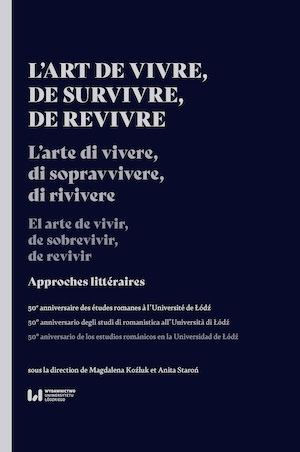“L’Horloge des siècles” (1902) d’Albert Robida. “No future” ou la vie à rebours
"The Clock of the Centuries" (1902), by Albert Robida. “No future” or a Counter-clock Life
Author(s): Laure LÉVÊQUE
Subject(s): Language and Literature Studies, Literary Texts, Studies of Literature
Published by: Wydawnictwo Uniwersytetu Łódzkiego
Keywords: Robida (Albert); post-apocalyptic (genre); regressive anticipation; anti-progressivism; catastrophism
Summary/Abstract: French writer Albert Robida, renowned for his futuristic works of fiction written in a bitter-sweet tone, somehow broke away from his usual inspiration in “The Clock of the Centuries” (published in 1902), as electric life short-circuited. This atypical novel opens up, in the early stages of the twentieth century Robida now refuses to anticipate and explore, with a cataclysm that all but extinguishes every form of life on earth and gives a symbolic warning that there is something wrong in the civilized world. Survival is organized, but Robida then subverts the “post-apocalyptic” narrative to introduce an unprecedented variation: the survivors realize that, after the catastrophe, an “out-of-joint” universe, in which the hands of time are now ticking in reverse, has now taken over. Comic relief is provided by the heroes getting younger and historical figures being brought back to life, but conceals the violence of the continuity solution staged by Robida in this counter-clockwise anticipation novel, as the restoration of order is achieved under the aegis of a mutilated Janus. This gave the momentum for an anti-progressive eschatology, which turned out to have a great future in literature.
- Page Range: 205-224
- Page Count: 20
- Publication Year: 2022
- Language: French
- Content File-PDF

